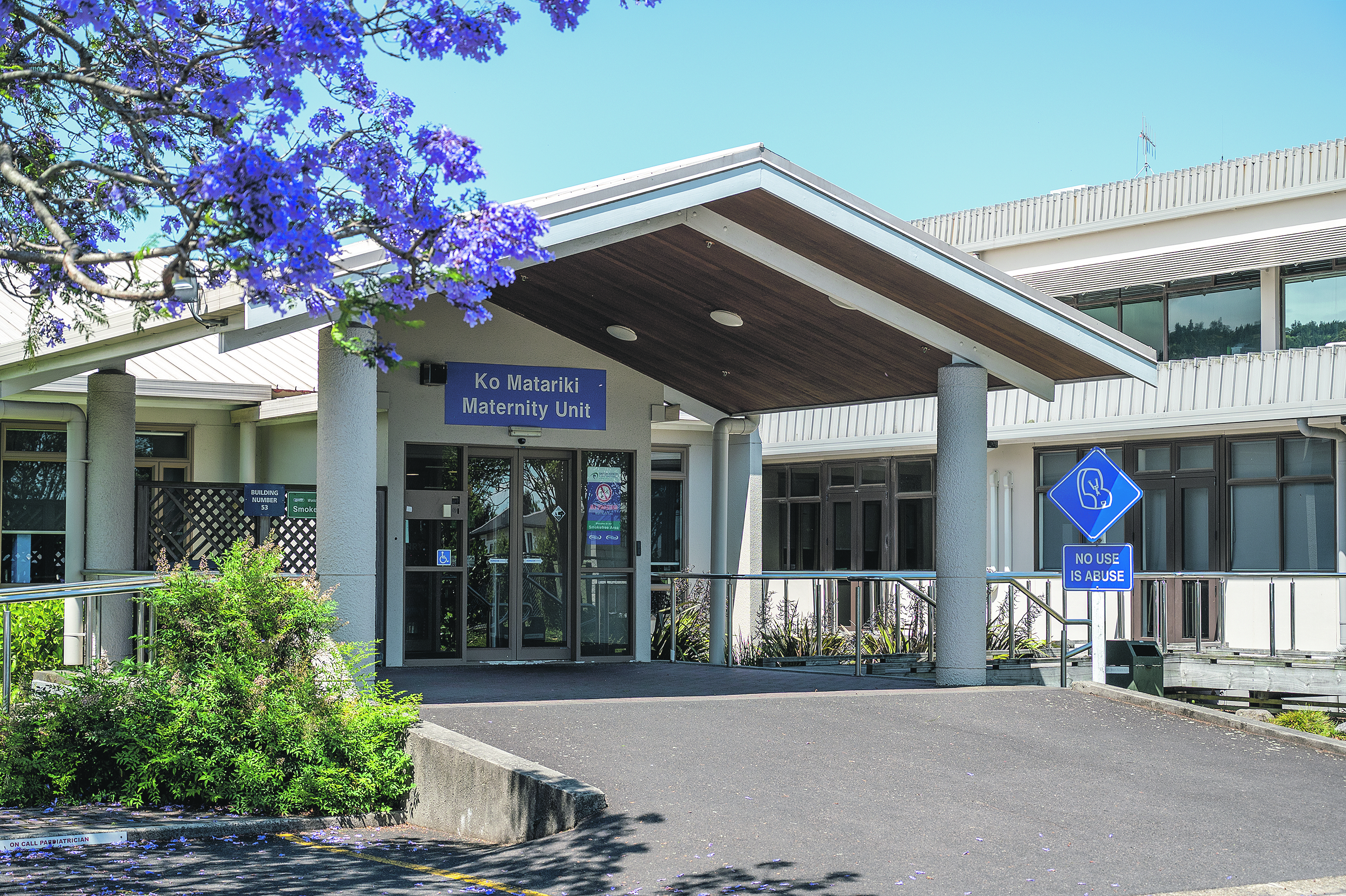Life and death situations for pregnant mums

Kathy Forsyth
The fallout from the decision to downgrade the Obstetrics and Gynaecology Department in Whakatāne Hospital to a birthing unit continues.
From mid-January the hospital will no longer provide full obstetric and gynaecological services for 12 to 18 months, transitioning to a primary birthing unit. For many in the area, especially those living in rural locations or along the coast, this change raises serious safety concerns during high-risk pregnancies and emergency births.
Whakatāne Hospital delivers about 650 babies a year, with approximately 120 of these births requiring a Caesarean section. The availability of specialist care during these procedures has been described as essential – and even life-saving – by mothers who have shared their experiences with The Beacon.
For women in more isolated areas, the shift to a birthing unit without immediate access to obstetric specialists poses a dangerous risk.
Health NZ has attributed the downgrade to challenges in recruiting specialists, but one doctor close to the matter, who spoke with The Beacon, disputes this explanation.
“Six months ago, there were five full-time specialists working in the O&G department at Whakatāne,” the doctor explained. “Four of them continue to work in rural O&G settings across New Zealand. No one is leaving because they don’t enjoy working in rural facilities.”
The doctor said it was well known that three doctors still had homes in Whakatāne.
They also pointed out that a locum, who had worked in the department for several years, was let go when their contract wasn’t renewed. Additionally, another obstetrician now employed at the hospital may be asked to leave when the changes take effect in January.
East Coast MP Dana Kirkpatrick has expressed concern over the situation and intends to meet with health officials to advocate for Whakatāne.
Mrs Kirkpatrick said she understood recruitment was ongoing locally and internationally and Health NZ was pursuing a number of options to return to full-service provision as a priority.
Despite these efforts, a quick review of the Health NZ job listings shows no advertisements for obstetricians in Whakatāne, though there are postings for other regions. It is understood that Health NZ is actively recruiting internationally for the role.
Ms Kirkpatrick said Health NZ had recruited two senior medical officers from overseas who were expected to begin in mid-2025.
“Health NZ is doing everything it can to reduce the impact on patients and their whānau.”
An operational working group has been established to look at options to support patient transport and accommodation.
WHAT THE PEOPLE SAY ...
The downgrade of Whakatāne Hospital’s gynaecology and obstetrics department has sparked outrage on social media with the Beacon’s Facebook community quick to condemn Te Whatu Ora’s decision …
* Tauranga hospital does not even have the resources for Tauranga residents. How exactly are they planning on cramming in Whakatāne's birthing mum's as well. There are going to be a lot of babies being birthed on the side of the road if this goes ahead – Shaz Holm
* The ambulance service is going to be pushed to the edge to get Mum's over to Tauranga in a hurry – Brenda-Jade Wardlaw
* Absolutely outrageous. The Whakatāne maternity unit services whānau from here and down the coast - many already facing significant challenges. We tell everyone to engage in the health system and then let them down like this? I've birthed two babies in Whakatāne maternity unit and had amazing care - but there was an obstetrician involved both times. For goodness sake, let's prioritise health and education and see downstream issues unravel. Where can I hand my “tax cuts” back so we can be appropriately resourced? – Kristen Stasiewicz
* Such a concerning time as an expecting mother with a birth approaching ... being told I cannot birth in Whakatāne this late in the game is uneasy … my last baby nearly didn't make it home alive and the incredible team in maternity worked magic on him. I’d hate to have a repeat again this time with the extra pressure of getting to Tauranga to receive this care, it is sure frightening. – Haylee Maree Cooper
* This is so scary! This awesome small maternity unit already struggles enough and covers a big area not just Whakatāne. Something needs to be done before a mother and baby die – Anna Kelly
* We needed an upgrade in care not downgrade – Kriska Waghorn-Otic
* I’ve never been so appalled by anything than this. Risking babies lives, new mothers lives, māmās with babies waiting for her to come home safe. What do you mean “those high risk must travel”. What part of giving birth is not high risk? It is not always smooth sailing; I know plenty of women who have had a smooth birth but moments later they are being rushed into theatre. Stop depriving rural communities of access to much needed care. An extra hour of travel. Tell me how that falls under the “emergency” category – Rachael Heke
* Disgusting, risking the lives of babies and new mums. Our future. Whakatāne covers a wide rural area. Add another 1-hour travel for those who already need to travel to Whakatāne. What about when there's an emergency? After a straightforward natural birth māmā has a retained placenta. I have witnessed first-hand how urgent it is for an obstetrician to get māmā into theatre. Every second counts. I don't know how these decision makers can sleep at night – Iso Bindewald
Read more:
Downgrade devastating - mayors
Women and midwives lives put at risk